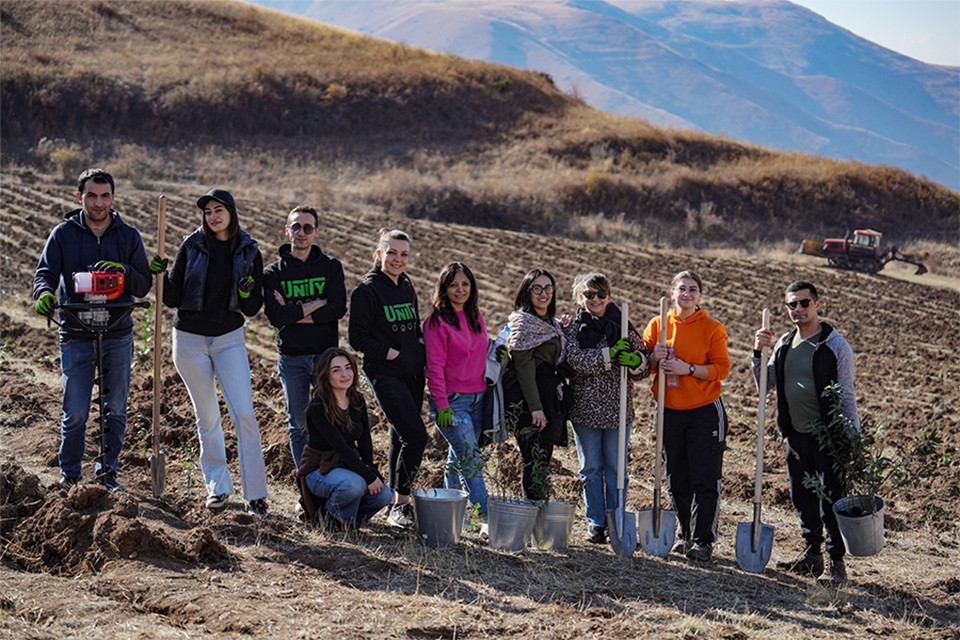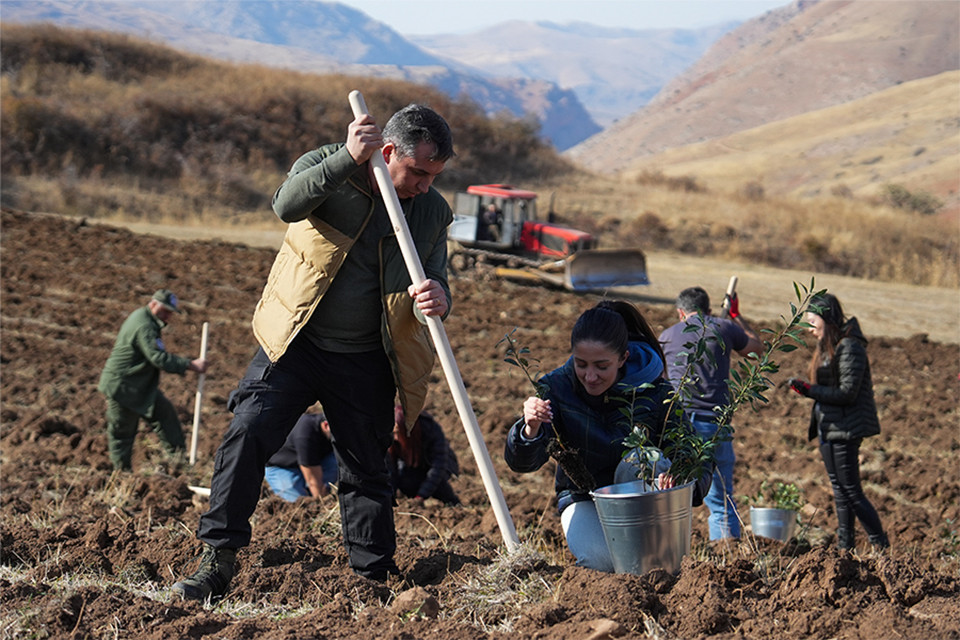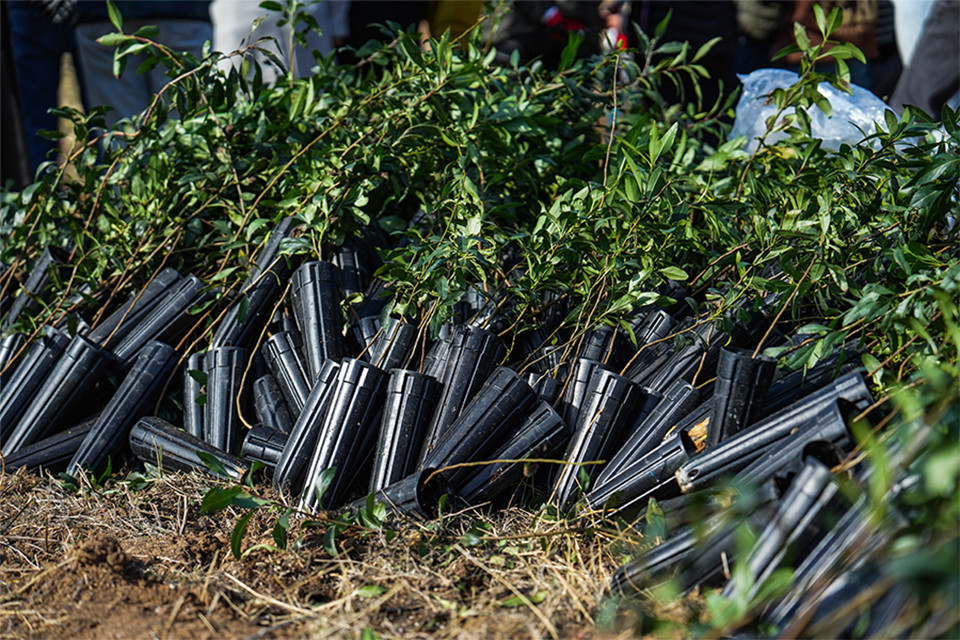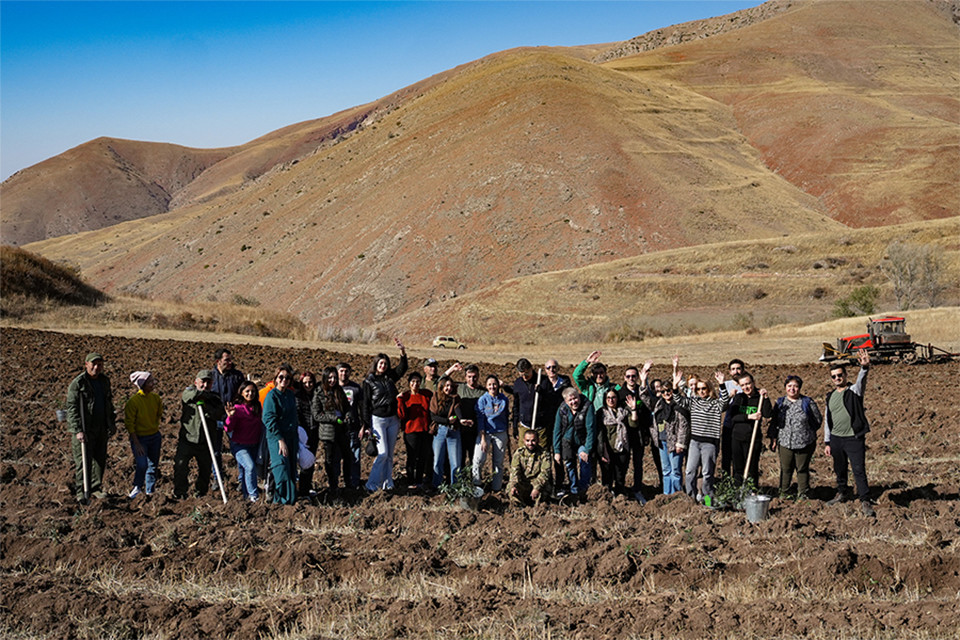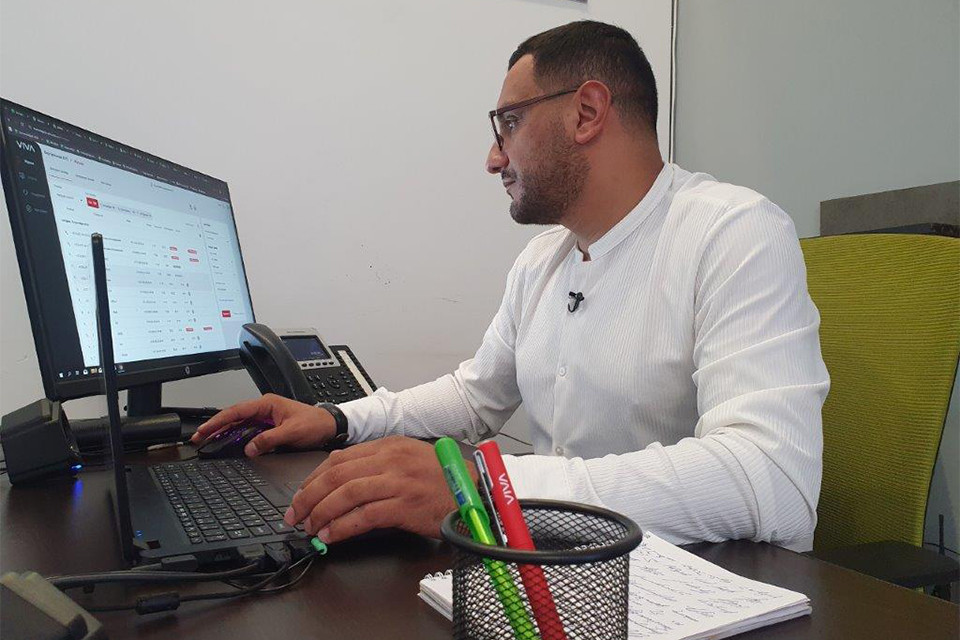15:25 | 04.11.24 | News | 15387
Ucom Employees Participate in Forest Restoration Efforts in Vayots Dzor
On November 1, Ucom employees joined SunChild NGO and its partner, the Foundation for the Preservation of Wildlife and Cultural Assets (FPWC), for their annual tree-planting initiative.
Sunchild NGO cooperates with FPWC, which has been planting forests in Vayots Dzor region for years. This year it is planned to plant more than 100,000 trees, which were grown and cared for in nurseries.
About 40 employees from Ucom spent a whole day as volunteers in the picturesque mountains of Gnishik settlement of Areni community in Vayots Dzor region and planted more than 2,000 trees. During the event, they also learned about the desert landscape restoration project, local environmental challenges, and future volunteer opportunities.
"Green technologies and caring for the environment are the main directions of Ucom's corporate responsibility. This commitment is not only held at the company level but is also a shared value among our employees. Today, we’re delighted to be here, contributing to Armenia's green future," said Ralph Yirikian, General Director of Ucom.
"It is extremely important when the employees are also involved in the cooperation of two organizations, especially when it comes to environmental projects. We also plan such initiatives during our future cooperation. Tree planting is only the beginning of reforestation work, which is followed by years of care," said Sona Kalantaryan, Director of SunChild NGO.
The purpose of the tree planting is to restore the now degraded, but formerly forested areas of the Caucasian Biodiversity Refuge (CBD) private protected area. CBD is the first privately protected area in the South Caucasus, covering more than 30,000 hectares. CBD and adjacent areas are of key importance in the conservation of South Caucasian biodiversity. Such rare animal species as the brown bear, bezoar goat, black vulture, bearded vulture, Armenian viper and Caucasian leopard live here.
Afforestation works contribute to the solution of a number of serious environmental problems: they help preserve endangered tree species, mitigate human-wildlife conflict, create new areas for feeding and reproduction of mammals and birds, mitigate climate change and prevent desertification, etc.

17:29 | 24.09.25 | Articles
Jacopo Losso on Cross-Border Investments and Why Armenia Attracts Angels

